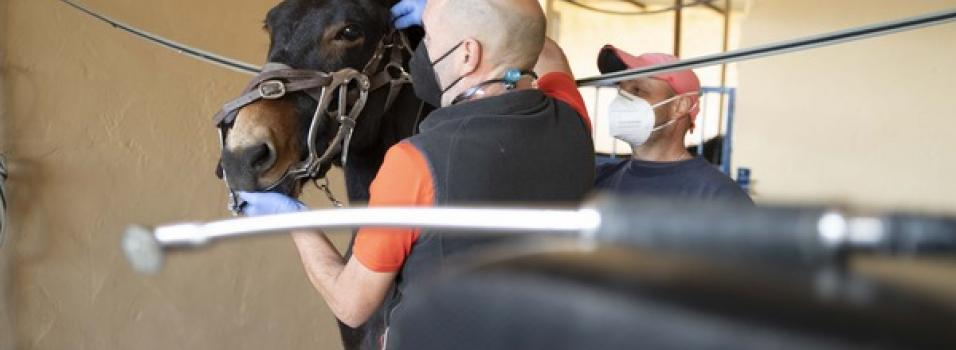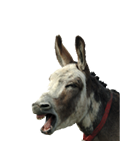Spring at our sanctuaries
Both of our sanctuaries remain closed to visitors, but we have a lot of action going on behind the scenes. We are currently making a series of improvements to our facilities that will result in an increase in the wellbeing of our donkeys and mules.
In our sanctuary at Fuente de Piedra (Malaga), we have been redesigning paddocks, making them more open and spacious and replacing our old wooden fence with a metal one. The new fence is more resistant, durable and safe (it does not require screws or nails to fix it).
We are also fighting the problem of intense heatwaves, which are becoming more frequent, by creating new areas of shadow. Our goal is that our animals can escape from high temperatures in the most sustainable way possible. For this, we have decided to plant trees around the meadows of our sanctuary. We have also had to erect fences around the trees so our lovely donkeys do not eat them before they grow.
During the winter months at our Doña Rosa (Badajoz) sanctuary, we planted cereal seeds so now our donkeys and mules can enjoy fresh grass and explore new paddocks. This is the perfect way to oxygenate the soil and move towards sustainability, and of course, it is a lot of fun for them to graze and explore new paddocks too.
Our dentist vet checked the mouths of all our 205 donkeys and mules. As dental disease is second only to donkey hoof problems as the donkey’s most common medical condition, prevention is key to maintaining good oral health.
Our farrier also spent a week with us as every two month, getting all of the donkeys’ hooves ready for the new season.
Some insects, such as flies, can cause great distress and irritation to donkeys. Prevention again is the best solution, which is why access to stables and field shelters, the regular removal of manure and the management of grazing times are important factors in reducing insect problems.
We have worked with entomologist to detect the type of flies that are harmful for our animals and taken measures to decrease their population at our centres with natural measures. These include removing manure from the centres weekly and introducing some natural presence predators who eat these flies, such as mites and a type of wasp. Results look very promising and we are looking to share more about this project with you shortly.




